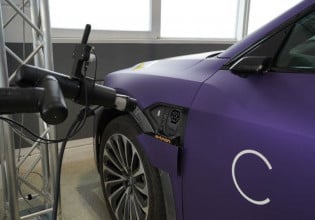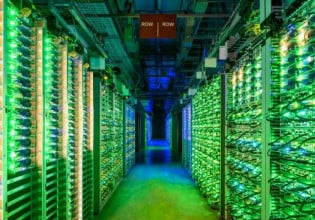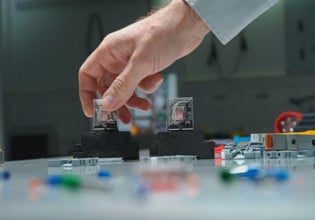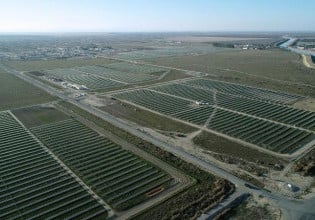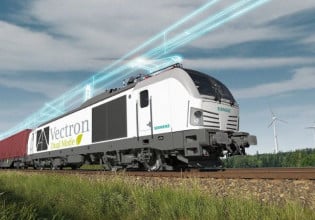A Deep Dive Into NERC’s Revised Rules for Inverter-Based Resources
This article explores the far-reaching implications of these changes on generation, transmission, and distribution systems, as well as the technological advances in IBRs and the impact on engineers working in this domain.
As the grid begins to rely more heavily on renewables and battery storage, inverter-based resources (IBRs) are gaining an increasingly important place in modern electrical systems. To address reliability concerns surrounding IBRs, the North American Electric Reliability Corp. (NERC) recently proposed revisions to its Reliability Standards.
Renewable energy sources like solar use IBRs to connect power to the grid. Image used courtesy of NREL
Now, NERC is seeking feedback on its revisions and has opened a 45-day window for industry comments. The feedback will be used to address standards set by the Federal Energy Regulatory Commission (FEPC).
Technological Advances in IBRs
Most renewable energy resources, like solar cells and wind turbines, share the characteristic that they initially output power in the form of direct current (DC). Converting this DC power to something usable by the alternating current (AC) grid requires the use of inverters.
IBRs, therefore, are a classification of devices that rely on inverters to convert DC power to AC power. This includes solar, wind, and battery storage systems.
Renewables and battery storage systems require inverters for interoperability with the grid. Image used courtesy of NERC.
Today, IBRs are revolutionizing the way we generate, transmit, and distribute electricity. Combined with advanced control algorithms and innovations in power electronics, IBRs are able to quickly respond to grid demands and supply fluctuations. The result is that IBRs can lead to enhanced resilience and a more reliable grid.
However, about 14% of owners and operators of bulk power system (BPS)-connected IBRs still are not currently required to register with NERC or adhere to its Reliability Standards, leading to reliability concerns.
NERC's Revised Rules
According to NERC, the revisions were made to address reliability gaps relating to data sharing, model validation, planning, and operational studies.
The proposed revisions are as follows:
-
Adding definitions for "Generator Owner – Inverter-Based Resources" and "Generator Operator – Inverter-Based Resources”
This revision aims to create a standardized nomenclature for entities involved in the ownership and operation of IBRs. By adding these definitions to the Registry Criteria, NERC seeks to clarify which entities are subject to its regulations. This is a crucial step in ensuring that all IBRs, whether previously registered or not, adhere to the same set of reliability standards.
-
Making changes to the Organization Registration and Certification Manual
The Organization Registration and Certification Manual serves as a comprehensive guide for entities to understand their responsibilities under NERC's regulatory framework. The proposed changes aim to align the manual with the new definitions and criteria for IBRs. This will make it easier for entities to understand their roles and responsibilities, thereby improving compliance.
-
Clarifying the scope of registration in the Statement of Compliance Registry Criteria
The Statement of Compliance Registry Criteria outlines the conditions under which an entity must register with NERC. The proposed revision seeks to clarify the scope of registration, particularly concerning IBRs. This will help ensure that all relevant entities, including those that own or operate IBRs, are aware of their obligations and are registered accordingly.
Implications for Engineers
While these changes promise a more resilient and sustainable energy landscape, they also pose challenges that engineers must skillfully navigate. The revised rules will necessitate engineers to adapt to new standards and protocols. For example, electrical engineers will need to focus on data sharing, model validation, and planning to ensure that IBRs meet the new or modified Reliability Standards. This could mean a steep learning curve and potential reconfiguration of existing systems.
As the industry comment period runs until October 30, 2023, stakeholders have a golden opportunity to shape the future of IBRs and, by extension, the electrical systems of tomorrow.
A full list of NERC’s proposed revisions can be found on their website.




